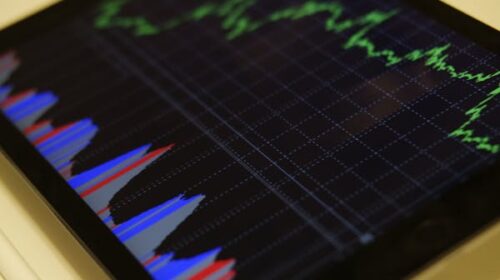Commodity futures are agreements to purchase or sell a certain quantity of a commodity at a predetermined price on a future date. This trading allows traders to hedge against price changes for profit.
Luckily, the rise of technology has made it easier for beginners to take part in trading commodities via the use of trading apps on their mobile phones. This article will outline basic concepts about commodity futures that are essential for new entrants into this field.
What are Commodity Futures?
Commodity futures are contracts that require the buyer to purchase, and the seller to sell, a specific quantity of a commodity at an agreed-upon price for delivery on a future date, often several months ahead.
These contracts are traded on exchanges and standardized so that participants can hedge or place trades to benefit from price fluctuations. Commodities may include various physical goods namely:
- Agricultural products (for instance corn, wheat, etc.)
- Energy resources (such as oil, natural gas, etc.)
- Precious metals (such as gold, silver, etc.)
Most commodity futures trading contracts are settled at their expiration date. The difference in price between the original trade and the closing trade is settled in cash.
These commodities futures are named after their expiring months; for instance, a contract expiring in September is referred to as a September futures contract. Some commodities may experience substantial price volatility, leading to the potential for significant gains as well as heavy losses.
Purpose of Trading Commodity Futures
The primary aim of commodity futures is to manage the risk that occurs due to fluctuating prices in the commodities market. Producers and consumers of commodities hedge off their exposure to prices using these contracts against any adverse movements.
By securing prices through futures contracts, businesses can better plan and budget, minimizing the uncertainty of fluctuating commodity prices.
Moreover, Commodity futures give room for traders to make money out of price movements. These contracts allow traders to take positions on the future price direction of commodities, leveraging their trading to potentially amplify gains (or losses).
This dual purpose of hedging and earning a profit makes commodity futures a vital tool in the financial markets.
Benefits of Commodity Futures
Commodity futures offer several benefits, including:
- Price Hedging: They allow producers and consumers to lock in prices, reducing the risk of price fluctuations.
- Leverage: Traders can manage a large position with a relatively small amount of capital, potentially amplifying profits.
- Liquidity: Many commodity futures markets are highly liquid, making it easy to enter and exit positions.
- Diversification: Trading in commodities can diversify a trading portfolio, reducing overall risk.
- Inflation Hedge: Commodities often retain value during inflationary periods, acting as a hedge against rising prices.
- Earning a Profit: Traders can profit from price movements without needing to own the physical commodity.
How to Trade Commodity Futures?
To get started with commodity trading on a futures trading app like Dhan, here’s a simple step-by-step guide to help you begin:
- Open a free account on Dhan Broker and access the option trading platform.
- Select a commodity, such as crude oil, silver, or gold, and view the futures chart.
- Choose a view, such as bullish, bearish, or non-directional, and explore the pre-built option trading strategies, such as bull spread, call spread, or long strangle.
- Compare the maximum profit, maximum loss, open interest, and Greeks of each strategy and select the one that suits your risk appetite and market outlook.
- Execute the strategy by clicking on the buy or sell button and confirming the order details.
- Monitor the performance of your strategy and exit when you reach your target or stop the loss.
Conclusion
Commodity futures offer a unique way to trade in various markets while managing risk or seeking profits. With tools like trading apps, getting started is easier than ever for beginners.
However, it’s important to educate yourself about the risks and strategies involved. By understanding the basics of commodity futures, you can make informed decisions and explore exciting trading opportunities in the world of commodities.

